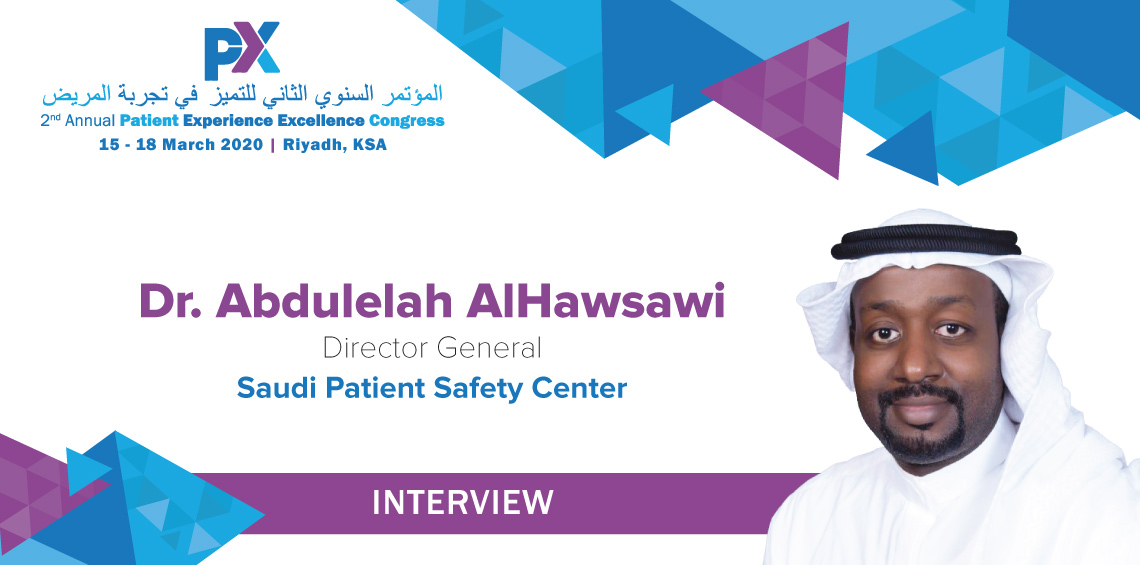Dr. Alhawsawi is one of Saudi Arabia’s healthcare quality leaders and advocates. His passion to performance improvement started as a practicing physician, where he advanced in this role as a leader in provider organizations, researcher and health policy expert.
Through his current role as Director General of the Saudi Patient Safety Center, Dr. Alhawsawi helped in establishing systems that achieve continuous improvement of the quality of services provided to patients and their families.
Interview
What role does active patient engagement have in fostering a better healthcare experience and heightened patient satisfaction? Why do you think that?
Patient engagement and empowerment can be the “blockbuster drug of the century” if implemented in an effective and meaningful manner. Additionally, this will have a profound positive impact on shaping patients’ and families’ healthcare experience and improving patient satisfaction. When patients and families are actively involved in making decisions about their health care options, they tend to have more sense of control and autonomy over their health care journey, which in turn leads to better health outcomes.
What do health care providers need to do differently in order to motivate and empower patients to take greater role and responsibility for managing and improving their health?
Health care providers need to consider patients as an integral member of the health care team. Being an active member of the health care team leads to a much more inclusive decision-making process and reduces the power gradient in the health care systems. Health care providers need to understand that patients are experts regarding their health. Another critical element is communication, active listening, providing health information in plain language, and personalized holistic treatment options are essential for health care providers to practice as this will lead to a motivated and empowered patient population.
If you could redesign health care delivery – what key things would you change to transform patient view of the healthcare experience?
To transform the patient view of their healthcare experience will require:
- actively engaging patients and their families in designing and co-producing health care services with healthcare professionals.
- providing health information in plain language and decision support aids that inform the patient about their treatment options
- healthcare systems being transparent and include patients, families and communities in their governance structures, policy formulation etc.
What do you see as the future for patient reported outcomes, and involving patients in defining what a quality outcome is from their perspective?
The patient-reported outcomes would be the norm in the future for evaluating healthcare effectiveness, as more and more patients are voicing what is essential for their wellbeing, which is usually quite different from the current clinical outcomes used in healthcare. The patient-reported outcomes would also impact patient satisfaction positively and add value to the overall patient experience.
As a speaker at PXEC, what are you most looking forward to?
Contribute to a deeper understanding of how to implement creative and sustainable patient empowerment practices that will enhance trust and a safer healthcare system.



